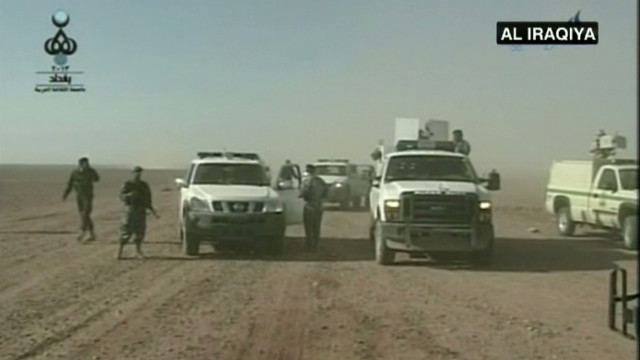Sunday, 10 March 2013
Thai elephant polo trumpets conservation
German royalty, transgender Thais, and New Zealand All Blacks converged to raise money for pachyderm rehabilitation.
| ||
Welcome to the 11th annual King's Cup Elephant Polo tournament that recently played out in balmy Hua Hin, Thailand, about 200km outside Bangkok.
"This is the most eclectic mix of quirky people you'll find anywhere in the world," said German Prince Carl Oettinger-Wallerstein, 42, from Bavaria. Beside the fun and games, there was a serious side to the event: helping elephants - Thailand's revered national symbol. Most of the animals were taken from the jungle to serve as tourist attractions in busy cities such as Bangkok. About 3.3 million baht (US$107,000) was raised this past week for various elephant rehabilitation initiatives. Elephant polo was first founded in 1982 in Nepal when James Manclark, a scion of horse polo, started the pachyderm version with fellow enthusiast Jim Edwards, now deceased. They rode elephants that gave tourist rides to get the sport up and running, but many adjustments were obviously necessary. "We tried to play on a horse polo field, but decided it was too far for the elephants to run," Manclark remembered. "We also tried to play with small footballs, but found the elephants would step on them and burst them." Manclark is typical of the eccentric personalities the tournament attracts each year. An industrialist who lives in Scotland, he unsuccessfully attempted to circumnavigate the globe in a hot-air balloon in 1999. All Blacks meet lady boys This year's tournament also pitted former New Zealand All Black's Robin Brooke, Olo Brown and Charlie Riechelmann against opponents such as Panvilas Mongkol "Miss Tiffany Thailand" - a transgender beauty queen - and her team ofkatoey cabaret dancers. "Here we are watching Thai lady boys playing elephant polo with former members of the All Blacks rugby team," marvelled Prince Oettinger-Wallerstein. "Handicapping" was afforded the weaker teams to keep the matches even. The transgender squad from the seaside Thai town of Pattaya had never played polo. Points were already on the scoreboard for them before the matches began. "This year we've had no runaway games and the play has been relatively exciting," said John Roberts, an event organizer. "We've also had allegations of cheating in the past. Each team thinks the other team has paid off the mahouts. But so far, everyone seems to be behaving."
"You really have no control," said Robert Mullis, an English financier who lives in Thailand. "Often it's just pure luck where the mahout and the elephant end up." Elephant rehab Some animal rights groups have raised concerns over the sport, including the steel hooks the mahouts use to steer the elephants. But event officials and veterinarians say the animals suffer no pain. Roberts said most of the elephants were rescued from the streets of major Thai cities. None have ever been harmed while playing polo, he says. "We have 40 animals for this event so they only have to play a few times each day. We have always worked hard to not stress the elephants, and to make sure they are well cared for by the players and the mahouts," he says. Since the event kicked off in Thailand in 2001, pachyderm polo has raised more than US$500,000 for various local and international charities dedicated to protecting Asian elephants, both in captivity and the few remaining wild herds across Thailand. Funds also go for programs including elephants working with children with autism, therapy for those rescued from street life, and even an elephant ambulance. "Much of the money raised has gone to a hospital in Krabi that treats elephants, as well as efforts to stop deforestation across the country," said William Heinecke, whose Anantara Hotel in Hua Hin is the primary sponsor of the event. |
Monday, 4 March 2013
Iraqi official: 48 Syrians killed in attack in western Iraq
The Syrian soldiers' convoy was ambushed by gunmen using roadside bombs and machine guns.
"From the beginning, we have warned that some militant groups want to move the conflict in Syria to Iraq," said Ali al-Mussawi,adviser to Iraqi Prime Minister Nuri al-Maliki.
"Militant groups are very active on the border areas between Iraq and Syria. Some of these groups affiliate with al Qaeda in Iraq," he added.
Al-Mussawi said that many of the Syrians killed in the ambush had earlier received medical treatment in Iraq. They were wounded during a battle at the Yaarabiya-Rabia border crossing a few days ago. The point is called Rabia in Iraq; Yaarabiya in Syria.
According to security officials in Ramadi, Iraq, several Syrians were wounded in that battle between the Free Syrian Army and Syrian soldiers.
Dozens of Syrian soldiers and officials took refuge in Iraq by surrendering to that country's army on Friday after rebels took over the Yaarabiya post, the officials said.
They added that the convoy had been headed from Rabia to the al-Waleed border crossing in Iraq's Anbar province when it was attacked.
The United Nations has estimated that about 70,000 people have been killed in Syria's civil war, which began roughly two years ago.
Just on Monday, at least 149 people were killed, according to the Local Coordination Committees of Syria, an opposition group. The deaths include 40 in and around Damascus, 35 in Raqqa province and 25 in Aleppo.
Subscribe to:
Posts (Atom)




 Baghdad -- Some 48 Syrians, most of them soldiers, and nine Iraqi soldiers were killed Monday in an attack near the western Iraqi town of Ar Rutbah, an official said, raising concerns that Syria's civil war could spill over into Iraq.
Baghdad -- Some 48 Syrians, most of them soldiers, and nine Iraqi soldiers were killed Monday in an attack near the western Iraqi town of Ar Rutbah, an official said, raising concerns that Syria's civil war could spill over into Iraq.